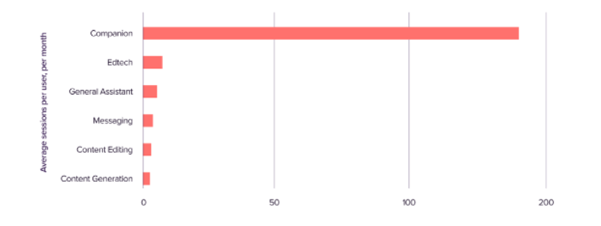
Your AI Boyfriend. What’s next?
In 1966, Abraham Maslow said, “I suppose it is tempting, if the only tool you have is a hammer, to treat everything as if it were a nail.” The human predilection to use the latest new technology to fix everything is enduring.
Now that artificial intelligence (AI) powered large language models (LLMs) are out of the bag, designers, creators, and even users of open-source models are exploring how the newest ‘hammer’ can solve a variety of problems. Indeed, some are going a step further, creating new ‘nails’ they know the hammer can fix.
Separately, a meme doing the rounds has a husband reflecting on his conversation with his wife; My wife just stopped and said, “You weren’t even listening, were you?” I thought, “That’s a pretty weird way to start a conversation.”
Could AI-powered companions be better listeners? Would we care if they could? Should we even want AI-powered companions? Is society better or worse off? It seems none of these questions matter because a raft of companies is already releasing subscription-based AI-Chatbots as digital companions. From Replika and Nomi to Wantalk in China, chatbots are increasingly edging out at least some human conversations.
And while an AI companion might seem niche, the activity has emerged as a predominant use case for generative AI with millions of people building relationships with chatbots.
Figure 1. Top gen AI consumer apps: engagement by category
 Source: Andreessen Horowitz
Source: Andreessen Horowitz
An increasing number of reports reveal that a growing number of women are now turning to chatbots for emotional connection and reassurance, finding simulated empathy more reliable than human partners. Some apps offer only text messaging, while others include voice chat, video, and avatars, challenging traditional views about human intimacy.
This year alone, eight new apps have made the Andreessen Horowitz 2024 list of Top 100 Gen AI consumer apps as measured by monthly active users. In the previous year, only two made the list. According to Andreessen Horowitz’s data, the average number of user sessions per month for companion apps is ten times greater than that of general assistant apps, content generation apps, and even messaging apps, suggesting AI companionship is becoming mainstream.
Worrying for anyone who has had personal information stolen by hackers, most AI companion apps require users to provide various amounts of personal information, such as age and preferences. Meanwhile, Nomi’s offering enables its chatbots to remember past conversations and details about their users. This may help to enhance empathetic responses, but it could threaten privacy further by becoming a never-to-be-deleted personal journal.
Proponents of the technology (read: self-interested vendors) argue that the growth in the use of companion bots is a reaction to challenges in human relationships, particularly the erosion of active listening. Others, however, warn that bonding with chatbots will further erode human relationships, exacerbating loneliness and diminishing our ability to handle conflicts with those who also have autonomy.
Whatever your own thoughts about the issues, as investors we should keep in mind AI is yet another hammer in a very long line of hammers, and inventors will find an ever-growing number of nails to hit with it.